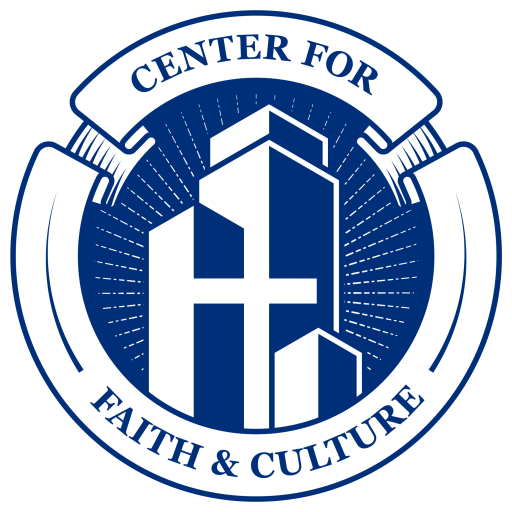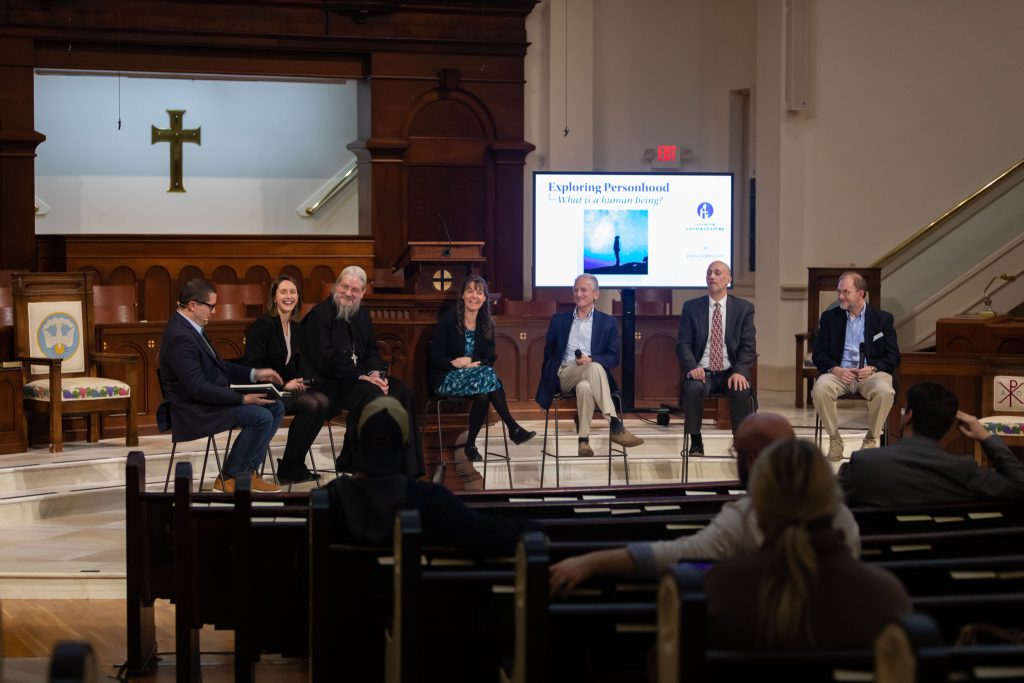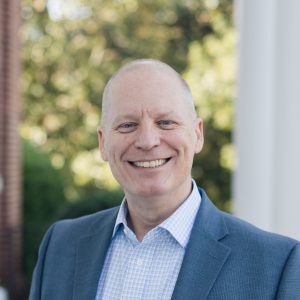
What Is Theological Anthropology?
What is theological anthropology? Here's what this phrase means — and why it's so important right now.

The Center for Faith and Culture recently embarked on Being Human: Theology and Praxis, a 3-year project on topics of theological anthropology, funded by a generous grant from the John Templeton Foundation. We want to work together to answer a simple but profound question: What does it mean to be human?
Sign up for the CFC newsletter now!
What does it mean to be human? We’re working to answer this question from the academy to the pew.
We’re advancing the conversation about theological anthropology via scholars like Dr. Joshua Swamidass, Dr. Erin Smith, and Jordan Steffaniak.
We’re educating our students about theological anthropology. In the Mentorship Program, students meet twice per month with special guests. Guest lectures and an annual conference bring together world-class scholars.
The Christ and Culture website serves as the hub for videos, articles, and podcasts — helping us educate everyday believers about theological anthropology.

What Is Theological Anthropology?
What is theological anthropology? Here's what this phrase means — and why it's so important right now.

20 Resources on Theological Anthropology
Want to be better informed on theological anthropology? Here are 20 books to get you started.

Ross Inman: What Are We? Bodies, Souls, and Human Persons
What are humans? In this PhD event, Dr. Ross Inman delivers a lecture in which he seeks to answer this question philosophically.

J. P. Moreland: Spiritual Formation, Virtue Ethics, and Christian Anthropology
J. P. Moreland discusses the role of spiritual formation, virtue ethics, and theological anthropology at the Center for Faith and Culture.

Justin Barrett: How to Build a Human
Justin Barrett's talk on what it means to be a human from Exploring Personhood conference.
Felicia Wu Song: What Are Our Devices Doing to Us?
How can we create pathways of meaninful resistance to our technologies? Felicia Wu Song joins us to discuss her new book 'Restless Devices.'
Carmen Imes: Remembering Who God Says We Are
What does it mean to be human? Dr. Carmen Imes of Biola University talks to us about what the Old Testament has to say.

Featuring Carmen Imes, Amy Peeler, Jeff Schloss, Justin Barrett, John Behr, and John Hammett. An interdisciplinary look at the question of human personhood, featuring insights from scripture, science, theology and more.

There is no doctrine more in need of careful consideration for our cultural moment than Anthropology. How we define humans and how we understand the human condition inform us in so many areas related to the Church’s mission—counseling, ethics and apologetics, just to name a few. Starting with Scripture as our final authority, we will engage with a broad arena of academic disciplines as we explore what it means to be imagers of God and how to live faithfully before God in his world.
All opinions and views expressed by guest speakers are solely their own. They do not speak for nor represent SEBTS. Read our expressed views and confessions.
This project was made possible through the support of grant #61985 from the John Templeton Foundation. The opinions expressed in this publication are those of the author(s)and do not necessarily reflect the views of the John Templeton Foundation.
Sign up for the CFC newsletter now!